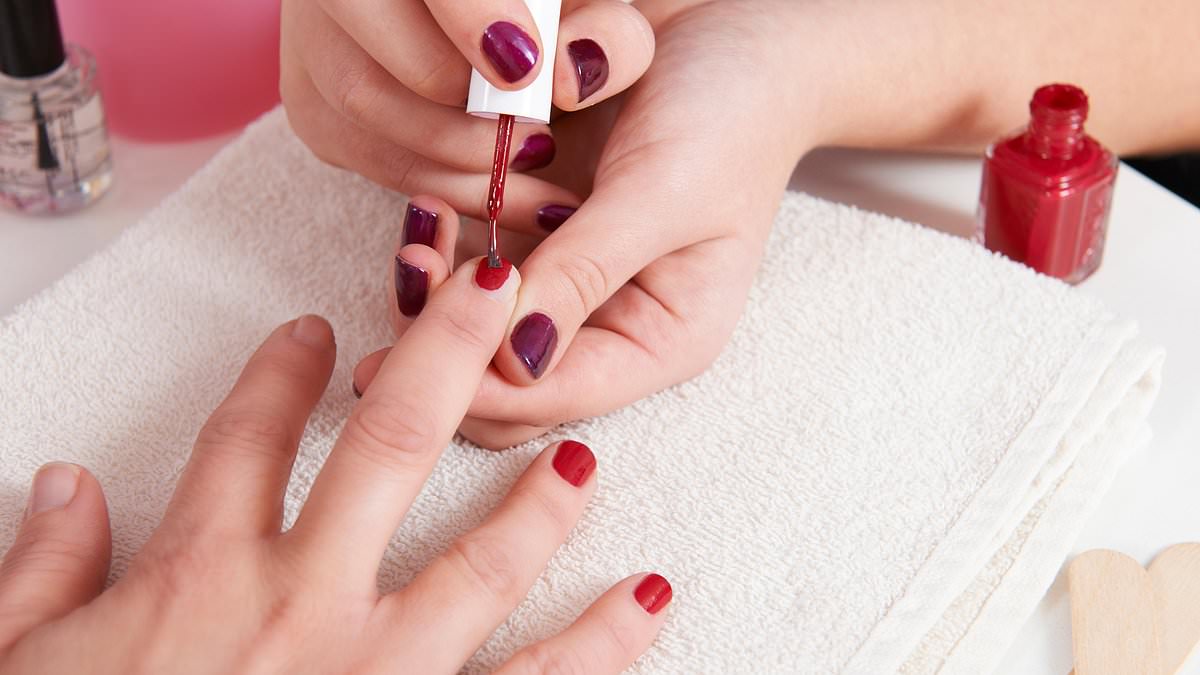Forget dating websites or singles nights, the best place to spot your perfect match might be at the nail salon.
A study has shown that couples with matching lunula – the half-moon found at the base of the fingernail – may be more likely to end up together.
The research, which looked at more than 2,000 people, compared the nails of 554 happily married couples and 500 pairs who were matched randomly.
It found that the spouses were twice as likely as the random couples to have matching lunula.
In a separate experiment they also compared the DNA material taken from 286 married couples with 200 randomly selected pairs, and discovered that the married couples had a higher genetic match.
Couples with matching lunula – the half moon at the base of the fingernail – are more likely to stay together, a study has found
It is perhaps not a surprise that genetics can play a role in finding the perfect partner. Research suggests that we are subconsciously attracted to those with similar characteristics, such as the same symmetrical facial features.
But this is the first study to suggest that the key to a happy marriage may be found in similarities in the lanula – which are formed in the first few weeks of embryo development.
Results of the research project, carried out by scientists at China’s Dalian Medical University, appeared in the journal Genes And Environment. The study states: ‘Selecting a life partner is a complex and deeply personal decision.
‘While cultural, social, and personal preferences often play a significant role, an emerging perspective suggests that biological factors and genetic characteristics may also influence spouse selection.’
Genetics can also play a role in finding the right partner, with spouses twice as likely to have a DNA match than random couples
It adds: ‘Our lunula count results show an exceptional distribution between spouses compared with the randomly matched couples.
‘To the best of our knowledge, this phenomenon has not been reported before.’
Dr Bav Shergill, consultant dermatologist, and honorary senior lecturer at the University of Manchester, said of the research: ‘This is about assortative mating, which is the tendency for people to choose mates on the basis of phenotype – [an individual’s] observable characteristics.
‘It is interesting research that suggests that the path to ‘true love’ has a genetic basis.
‘Richard Curtis [the writer and director of Love Actually] should take note!’
